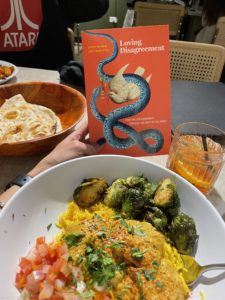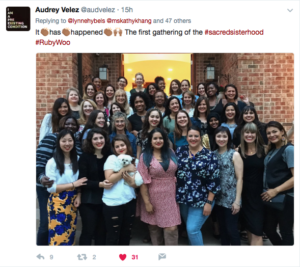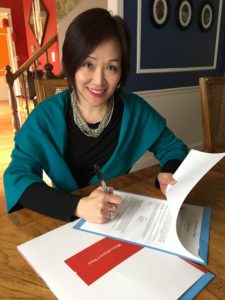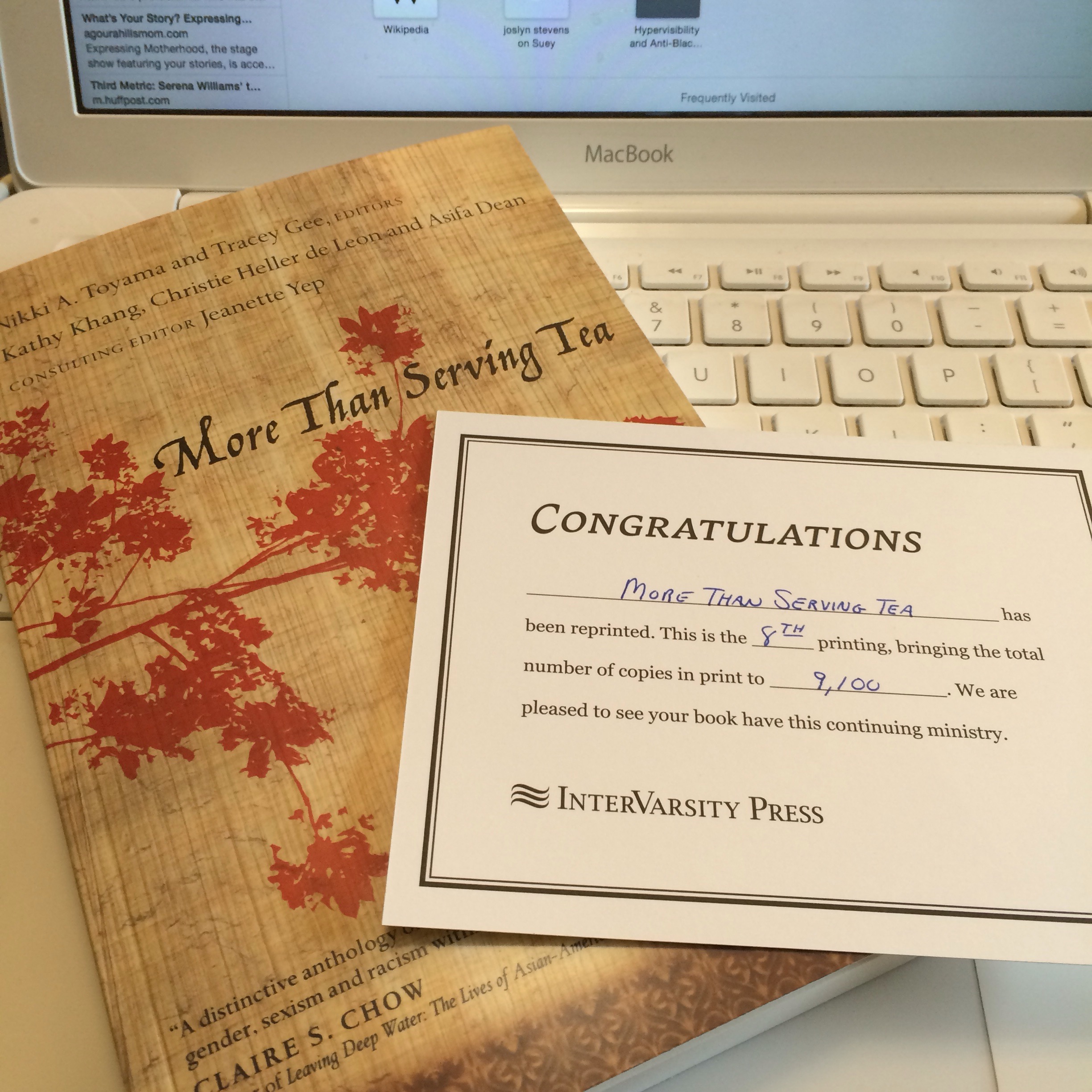OK, dear readers. I don’t know about you, but chapter three was tough for me. As if wanting to succeed and having ambition isn’t taboo enough, now we women get to really get emotionally naked and talk about likeability. Well, let’s get naked.
Sandberg dives in with some personal anecdotes to put flesh on the idea that cultural norms tend to associate men with leadership qualities and women with nurturing qualities creating a double bind for women. If a woman lead, she’s basically screwed because if she comes off like a man then people don’t like her, and if she is nice people like her but she can’t get ahead or get anything done. (I know I oversimplified, but I’m not writing a book here.) I’d like to add that it is a double bind for White women. For women of color, there is a racial/cultural twist that adds to the complexity of the issue – it’s a braid.
If a Black woman raises her voice she can quickly become “that (fill in the blank with your synonym of choice) Black woman.”
If a Latina raises her voice she can quickly become “that (fill in the blank with your synonym of choice) Latina.”
If an Asian American woman raises her voice she can quickly become “that dragon lady.” I get to pick the description because this is me.
Sandberg doesn’t have to fight the stereotypes of geishas, those waitresses who can’t speak English, those nail techs at strip mall nail shops who speak in their foreign languages that make English-only-speaking customers worry if they are being made fun of (maybe for once it’s not about you), “I love you long time”, petite & subservient women who cover their mouths when they giggle. Sandberg isn’t straddling multiple cultures in the same way most women of color have to do, and if she does I wish she had included that in her book.
Her suggestions for overcoming the likeability issue is to own one’s success (p. 44), substitute “we” for “I” (p.47), and emote and quickly get over it (p.50). Again, easier said than done.
Let’s tackle emotions because I have a lot of them at any given moment. My dad says I wear all of my emotions on my face the moment I feel them. My mom has always joked that I am the crybaby of the family. When my younger sister was in trouble and getting disciplined, I would be the one crying. That being said, I still cry a lot and I’ve struggled with processing emotions appropriately.
Getting over it quickly isn’t always possible nor do I believe it is the best thing to do in all cases. Yes, sometimes it’s better to take a breath and carry on. Earlier this summer during a fabulous road trip to the East Coast another driver did not appreciate my reminder that the left lane is for passing and shared his ill-manicured middle finger with me, and I responded in kind. I really should’ve just muttered under my breath about the rules of the road and moved on.
But sometimes as a leader, as a friend, as a parent, I have the opportunity to take a breath, name the emotion, connect it to what is going on for me in the conversation. I can help others by explaining what may be obvious to me but confusing to the person watching me: I’m angry, frustrated, sad, disappointed, etc. and it’s difficult, confusing, hurtful, etc. And then instead of hijacking the meeting by addressing my emotion, I can release the meeting to move along with the understanding that this is where I am coming from. It may slow things down, but in a world where we are often misreading each others’ cues – whether it’s through email, tweets, Facebook posts, or in face-to-face conversations, I believe we actually do need to name those emotions more and more.
So after my older son called me out on my expression of anger and frustration, I explained to him that I was ticked off and frustrated but that I shouldn’t have flipped off the other driver. I should’ve been satisfied with honking my horn and flashing my high beams.
Sandberg goes on to say that women need to own their successes and essentially speak in more communal terms when it comes to succeeding, at least in the business world.
Asian Americans who have a grasp of their mother tongue or culture experience the stark contrast between White American Western individualism and their cultures of origin. My Korean name does not start with my given name. It starts with my family name, my last name first because it isn’t about “me” or “I’ but about “we” and “us.” When you go to a traditional Korean restaurant you may have your “own” main dish but all the banchan – the side dishes that fill the table – are meant to be shared.
The feedback many of us Asian Americans have heard is that we are not assertive enough, we don’t self-promote and talk about our successes. But as an Asian American woman if I get into a shouting match and match tone and posture with a male colleague during a simulation in a leadership seminar, I get a talking to about my anger, aggression, and emotion, even if I try to get over it it comes back in evaluations and folklore. The male colleague does not.
Women don’t shout and point fingers. Asian American women certainly don’t shout and point fingers. And Christian women of all shades don’t shout and point fingers.
So what’s a woman to do?
I do think that as women we need to better own our successes whether they are in the business world, in our communities, in our churches, in our homes. I think the wins are important to name, recognize, and celebrate not just for ourselves but for us, our friends and family. And we, as Christian women of all shades, need to bring an end to the Mommy Wars. There is too much in current pop culture that wants to chip away at love that endures and success that brings us closer to “thy kingdom come, thy will be done on earth as it is in heaven” that can easily get lost as women argue about of working outside of the home versus working at home by focusing on our families. Success in our workplaces, in our friendships, in our marriages are worth leaning in to achieve, and I do believe that can come for both men and women in both the secular and the sacred.
What does that look like practically? For me it has meant owning my skills and talent for writing. I’m still figuring out some of the major details, but in the meantime I’m learning to say things like, “I am an author” without giggling. I am also making time to write for fun, to improve my craft, and to make some extra money while writing about things I am passionate about and believe furthering the conversations will bring us closer to kingdom come.
So what do you think? How difficult is it to own your own successes? Has success cost being liked? Do you like this post? Do you still like me?
🙂





